In Ancient Greek mythology, Athena was the goddess of of wisdom, handicraft and warfare. She was one of the most prominent deities in the Greek pantheon and there are numerous myths featuring her. Athena was the daughter and the favorite child of Zeus, the king of the Gods; and there is an interesting myth regarding her birth from the head of her father Zeus. Other myths featuring Athena include her contest against Poseidon for becoming the patron deity of Athens; her transforming Medusa into a Gorgon; her transforming Arachne into the first spider; and her cursing Tiresias to go blind. Moreover, Athena plays a key role in Homer’s epics ”The Iliad” and ”The Odyssey’‘. Here are the 10 most famous myths featuring the Greek Goddess Athena.
#1 Birth of Athena
Athena was the daughter of Zeus and his first wife Metis. Zeus married the goddess Metis, who is described as the “wisest among gods and mortal men”. After learning that Metis was pregnant, he heard a prophecy that Metis would bear children wiser than him and the unborn offspring would try to overthrow him from the throne. In order to prevent this, Zeus tricked Metis into letting him swallow her, but it was too late because she had already conceived. After a few months, Zeus developed a splitting headache and asked Hephaestus to help him relieve the pressure by cracking his head open with an ax. When Hephaistos opened his head, Athena emerged from Zeus’ skull, fully grown and dressed for battle. Athena was thus believed to have been born from the head of her father Zeus clothed. She became the favorite daughter of Zeus as she was his first born.
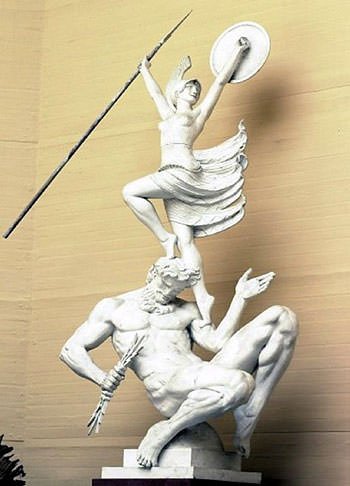
#2 Athena Versus Poseidon At Athens
Poseidon was one of the Twelve Olympians and was god of the sea, earthquakes, storms and horses. Poseidon and Athena had a much-publicized quarrel over who deserves to be the patron of the most prosperous ancient Greek city, Athens. In order to prove their respective worth as a deserving candidate, it was decided that each god would present the city with the gift. Cecrops, the first king of Athens, was the judge of the contest and would determine which gift was better. Poseidon struck the ground with his trident and a salt water spring sprang up thus giving the Athenians access to trade and water. Athena, on the other hand, offered the Athenians an olive tree. Since the tree brought them wood, oil and food; the Athenians choose it over the not so useful salty water of the spring. The olive tree later went on to become a symbol of Athenian economic prosperity. After losing the competition, Poseidon was furious and he sent a monstrous flood to the Attic plain to punish the Athenians.
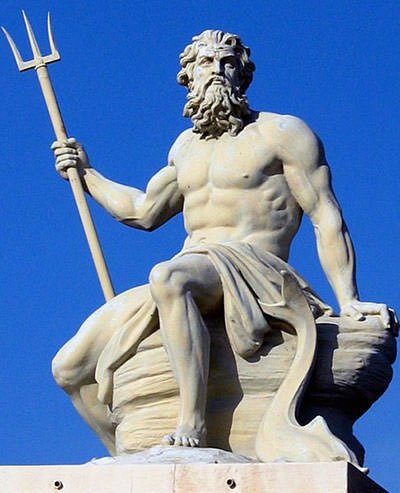
#3 Athena And Medusa
Medusa was a monster, a Gorgon, generally described as a winged human female with living venomous snakes in place of hair. However, she was initially a ravishingly beautiful woman who was priestess to the goddess Athena. A requirement for being a priestess to Athena was that the woman should be a virgin. Medusa was deeply desired by Poseidon and he pursued her to great lengths. Medusa tried to escape him by running to the temple of Athena. Nonetheless, Medusa was found by Poseidon, who went on to rape her on the floor of the temple itself. After discovering this, Athena was filled with rage. Punishing her for losing her purity, Athena transformed Medusa’s beautiful hair to serpents and made her face so terrible to behold that the mere sight of it would turn onlookers to stone.
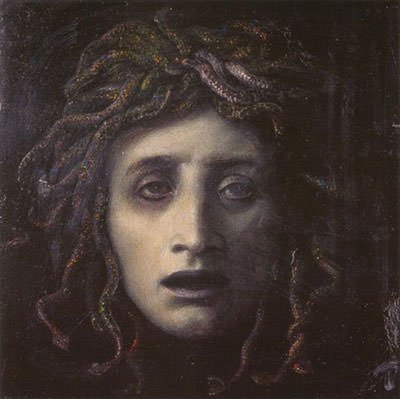
#4 Athena And Perseus
Perseus is the legendary founder of Mycenae, which was one of the major centers of Greek civilization. Athena was particularly fond of courageous youths and helped many heroes in their quests and one of them was Perseus. When Perseus was sent to kill the Gorgon, Medusa, Athena appeared to him after he set off on his quest and gifted him with tools he would need to kill the Gorgon. She gave Perseus a polished bronze shield to view Medusa’s reflection rather than looking at her directly and thereby avoid being turned to stone. Perseus went to the cave of Medusa while she was sleeping. By viewing her reflection in his polished shield, he safely approached and cut off her head. This resulted in Chrysaor and Pegasus emerging from her neck. They are considered to be children of Medusa and Poseidon.
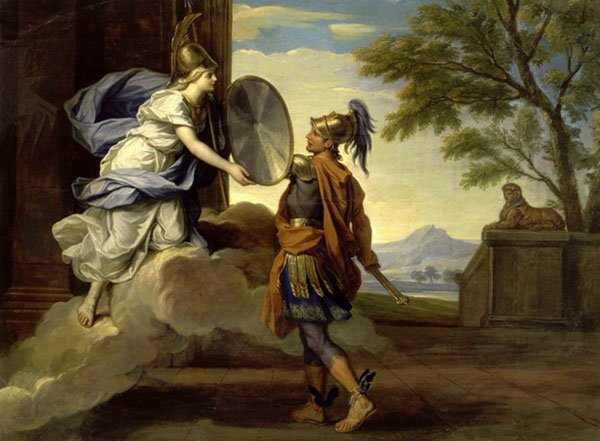
#5 Athena And Pallas
Pallas was the daughter of Triton, who was messenger of the seas. Athena and Pallas were childhood friends and Triton taught both the girls the art of war. During an athletics festival, Pallas and Athena fought with spears in a friendly mock battle in which the victor would be whoever managed to disarm her opponent. While Athena led the battle initially, Pallas gained the upper hand after a while. Zeus, not wanting her daughter to lose, distracted Pallas. Due to this, Athena accidentally killed Pallas as Pallas didn’t dodge her move as expected by her. Out of sadness and regret, Athena created the Palladium and was said to have carved the statue herself in the likeness of her dead friend Pallas. Later, distraught over what she had done, Athena also took on the title Pallas as tribute to her late friend. It was said that as long as the Palladium remained in Troy, the city would not fall. Due to this, the word palladium is now used to mean anything believed to provide protection or safety. Moreover, the chemical element Palladium is named after the asteroid Pallas, which was itself named after the title of Pallas which Athena acquired to honor her friend.
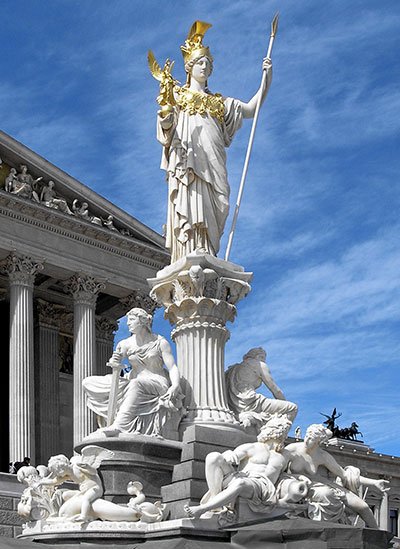
#6 Athena And Arachne
Arachne was a maiden from the city of Lydia. She was atalented weaver and spinner; and she challenged Athena, goddess of wisdom and crafts, to a weaving contest. Athena wove a beautiful cloth showing the gods and goddesses sitting together on Mount Olympus and doing good deeds for people. On the other hand, Arachne wove a cloth making fun of the gods and goddesses, showing them getting drunk and falling down and making a mess of things. When Athena saw what Arachne had woven, she became furious with anger and pointed her finger at Arachne. Suddenly Arachne’s nose and ears shrank up, her hair all fell out, her arms and legs got long and skinny, and her whole body shrank until she was just a little tiny spider. The name for spiders in many languages as well as the taxonomical class name Arachnida comes from Arachne. Moreover, Arachne has appeared numerous times in popular culture; in novels, and in movies and television series; as a monstrous spider.
#7 Athena And Tiresias
Tiresias was the son of a shepherd named Everes and a nymph named Chariclo, who happened to be friends with the goddess Athena. One day, Athena was bathing in a spring on Mount Helicon at midday with Chariclo. Chariclo’s son Tiresias happened to be hunting on the same mountain and came to the spring searching for water. He inadvertently saw Athena completely naked while she was taking a bath. Athena blinded him as a punishment to ensure that he would never again see what a man was not intended to see. Chariclo, the mother of Teiresias, was heartbroken and intervened on her son’s behalf to beg Athena to have mercy and to restore the sight of her son. After enough persuasion, Athena agreed, but was unable to restore his sight. In order to make amends, she cleansed Tiresias’ ears and gave him the ability to understand the language of the birds and the gift of prophecy. Teiresias became the most famous of all ancient Greek seers.
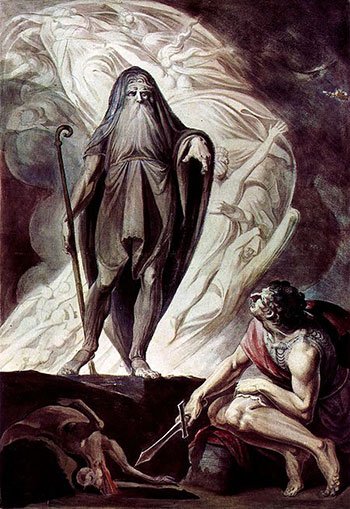
#8 Golden Apple of Discord
Eris, the Goddess of Discord, was prevented from attending the wedding of Peleus and Thetis. Being insulted like this, she threw her wedding gift from outside the door. This gift was a golden apple and had the engraving “To the fairest of them all”. The three goddesses Aphrodite, Hera and Athena all fought over this “Golden Apple of Discord”, each claiming to be the fairest and thereby the rightful recipient of the apple. They asked Zeus to decide who the rightful owner of the apple. However, sensibly, he decided not to interfere and asked Paris, the Trojan prince, to make the decision instead. Aphrodite bribed Paris by promising him that he would marry the most beautiful mortal woman in the world, and he ended up giving the Golden Apple to her. This made Hera and Athena begrudge Paris in a big way, which ended up affecting the outcome of the Trojan War.
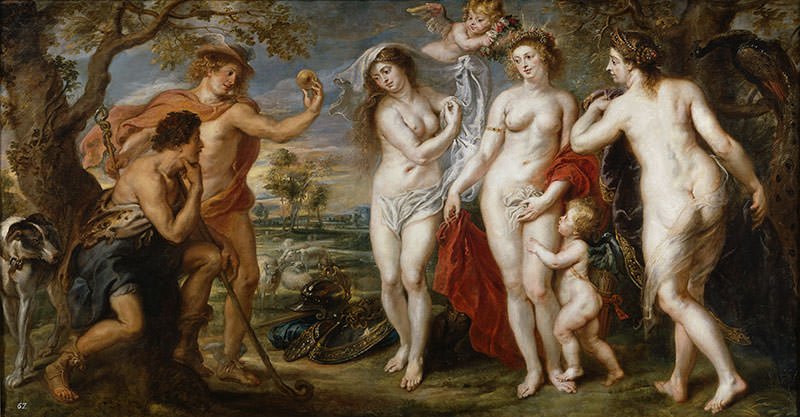
#9 Athena In The Iliad
Athena in Homer’s epic ”The Iliad” is a powerful figure as she was synonymous with military prowess. The Iliad is actually the earliest known account of her and portrays her as a fierce warrior in her role as the goddess known for heroic battle. Most of Athena’s role in the The Iliad is defined by the key fact that she had a strong desire for the Trojans to lose the war and strove to find ways to support the Greeks. Part of her pro-Greek inclination stems from her love for Menelaus, who led the Spartan contingent of the Greek army. The other reason for the same is the Judgement of Paris in which Paris chose Aphrodite over her as the most beautiful woman. Athena is a very prominent figure in the Trojan War. She acts as a calming force, a fellow fighter, an encouraging supporter, a wise counselor and a cunning persuader for the Greeks. She seemed to treat the Trojan War like a giant chess game in which men are the pieces and the gods are the hands controlling them.
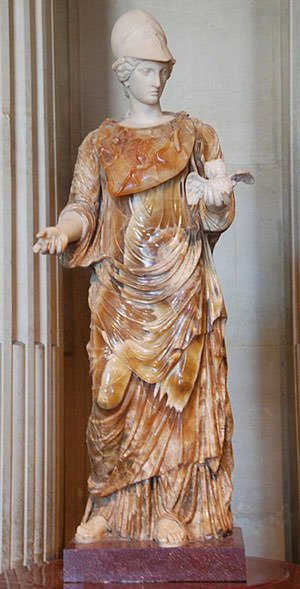
#10 Athena In The Odyssey
Athena also plays a prominent part in Homer’s other great epic ”The Odyssey”. The story of the The Odyssey captures the return of its protagonist Odysseus, the king of Ithaca, to his homeland. This journey takes him 10 long years and he is eventually able to reunite with his family and take back his land from the horrible suitors that filled his palace. Athena, the mighty Goddess of wisdom and strategy, takes the role of both protection and wisdom in the epic as she guides the titular character as well as his son Telemachus. Initially, Athena uses the tactics of disguise to influence the prince to find his father by shape shifting into Odysseus’ old friend Mentes, and predicting that Odysseus is still alive. She uses her great skills of strategy and wisdom to instill confidence and strength into Telemachus to help him to become a man by stepping forth on his journey to find his father. Moreover, it is with her help that Odysseus is able to become a stronger, nobler Homeric hero. Beginning with her first act of assistance to her final peacemaking, Athena is largely responsible for the creation and conclusion of the plot of The Odyssey.

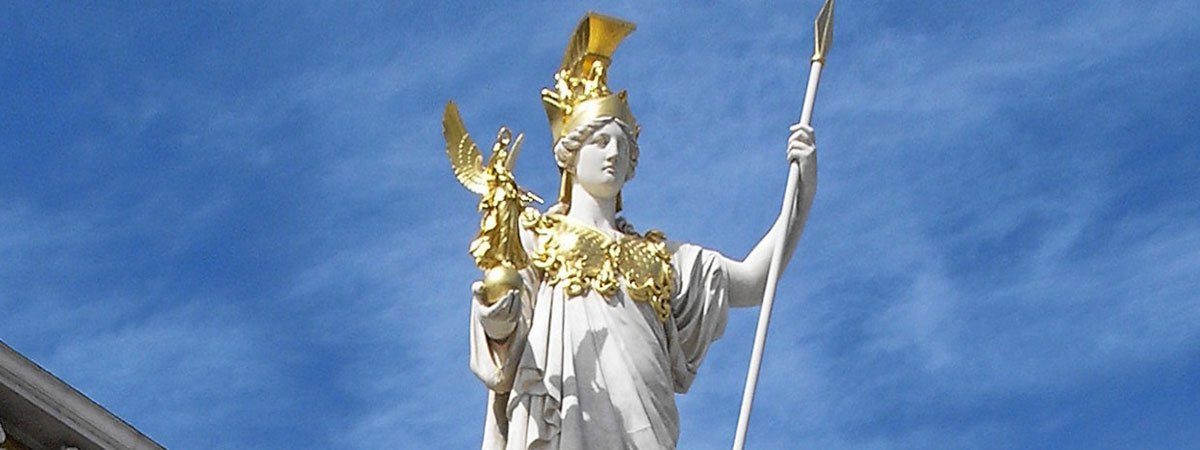
Famous story
I know there be many variations of the story of Athena and Medusa but the one I learned said that Medusa was Athena’s favorite and gave her the power to turn people into stone so she could never be touched without her permission again. But again there may be another variant of this story but the one I learned is very important to me.
Thanks for sharing your knowledge.
Oh, for sure! A more modern interpretation suggests that Athena gave Medusa the curse as a way of protecting herself. As she was unable to punish Poseidon for his actions, she gave her a means of defending Medusa against the evil within men.